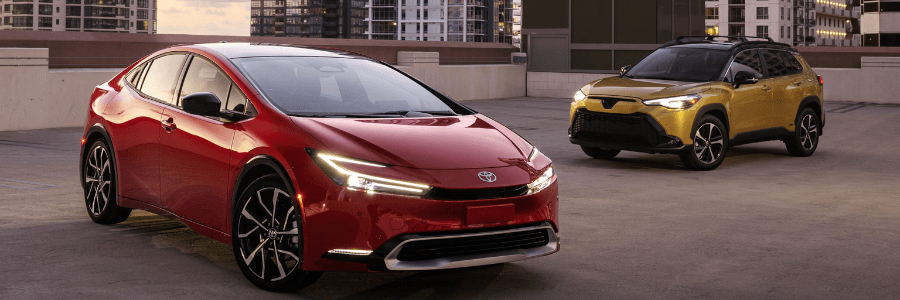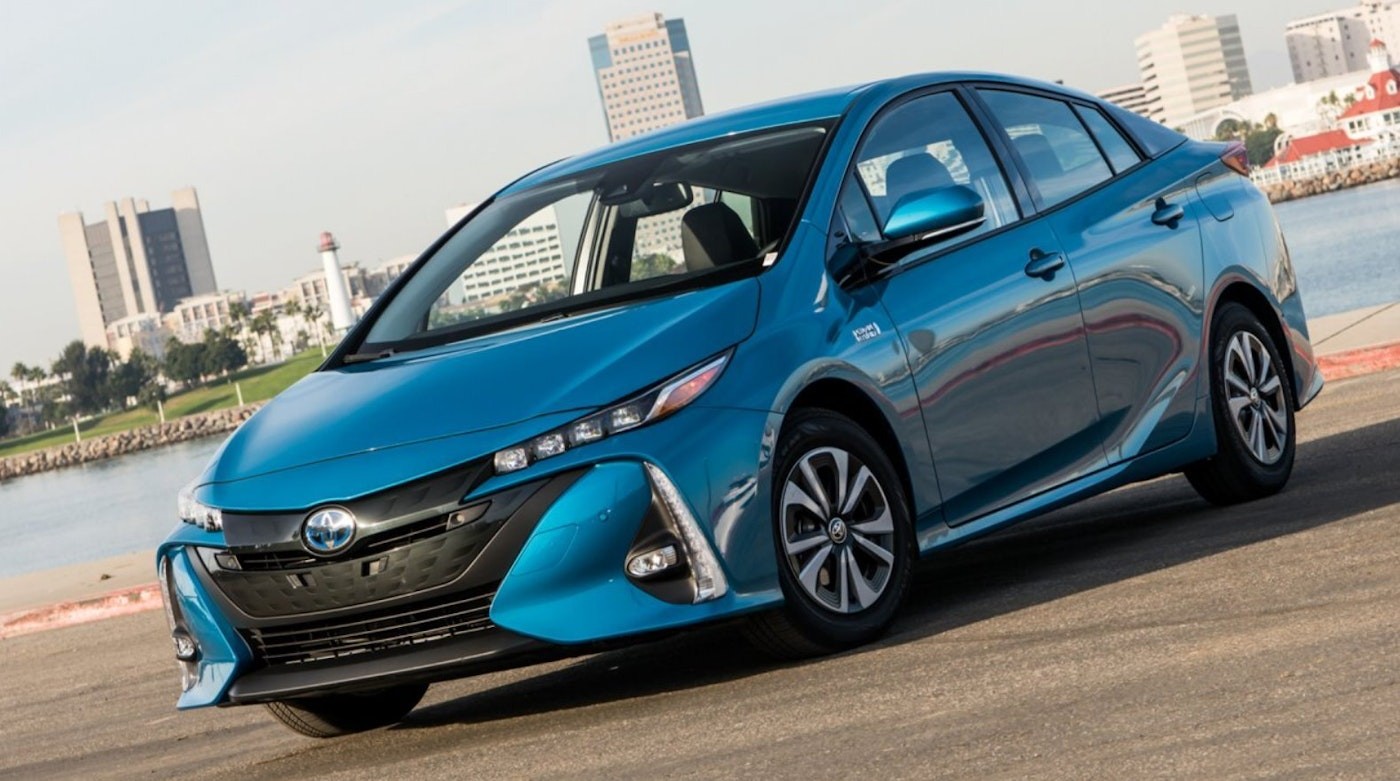Overview of Toyota Hybrid Cars
Toyota’s commitment to hybrid technology has significantly shaped the automotive industry. From pioneering the first mass-produced hybrid vehicle to consistently innovating upon its core principles, Toyota has demonstrated a deep understanding of efficiency and performance. This evolution has resulted in a diverse range of hybrid models, each reflecting advancements in powertrain design and technological capabilities.
The early days of Toyota’s hybrid journey were marked by research and development, culminating in the production of vehicles that demonstrated the feasibility of combining traditional combustion engines with electric motors. Over time, Toyota’s hybrid technology has become more sophisticated, addressing various performance and environmental concerns.
History of Toyota Hybrid Technology
Toyota’s journey into hybrid technology began with the development of the Prius, a groundbreaking vehicle that challenged conventional automotive thinking. This initial foray demonstrated the potential for hybrid vehicles to combine fuel efficiency with acceptable performance. The success of the Prius paved the way for further innovation and the development of various hybrid powertrains that are now integral to Toyota’s lineup. Subsequent models built upon this foundation, refining the technology and expanding its application across different vehicle segments.
Evolution of Hybrid Models
Toyota’s hybrid models have evolved from early prototypes to sophisticated, technologically advanced vehicles. The initial Prius, for instance, laid the groundwork for a smaller, lighter hybrid architecture. Later models incorporated improvements in battery technology, powertrain optimization, and overall vehicle design, leading to enhanced fuel efficiency and performance. This iterative process has allowed Toyota to refine its hybrid technology, ultimately making it more efficient and practical for a wider range of drivers.
Key Design Features and Advancements
Toyota’s hybrid vehicles consistently incorporate advanced design features, emphasizing efficiency and performance. Key features include optimized engine-electric motor integration, advanced battery management systems, and sophisticated control algorithms. The integration of these features ensures seamless transitions between power sources, maximizing fuel economy and driving experience. Over time, these designs have addressed issues of power output, acceleration, and refinement. The aim is to provide a hybrid driving experience that is indistinguishable from a conventional car.
Hybrid Powertrain Options
Toyota has offered a variety of hybrid powertrain configurations across its models. Early models relied primarily on a parallel hybrid system, where the engine and electric motor worked in conjunction. Later advancements introduced series-parallel hybrids, where the electric motor played a more significant role in propulsion. These various configurations allowed Toyota to tailor its hybrid technology to suit different vehicle types and driving needs. Different hybrid systems offer various levels of power and efficiency.
Technological Innovations Distinguishing Toyota Hybrids
Toyota’s hybrid technology stands out due to several key innovations. One significant innovation is the development of high-efficiency electric motors. These motors have high torque output and low losses, leading to improved performance and fuel economy. Furthermore, Toyota’s hybrid vehicles often feature advanced battery management systems, which optimize battery performance and lifespan. These features set Toyota’s hybrids apart from competitors.
Comparison of Toyota Hybrid Models
| Model | Fuel Efficiency (mpg) | Horsepower | Price (USD) |
|---|---|---|---|
| Prius | 58 | 121 | 28,000 |
| RAV4 Hybrid | 41 | 245 | 35,000 |
| Camry Hybrid | 45 | 245 | 30,000 |
Note: Values are approximate and may vary based on specific trim levels and model year.
Performance and Efficiency

Toyota hybrid vehicles are renowned for their exceptional performance and fuel efficiency, making them a compelling choice for drivers seeking both power and economy. This section delves into the specific performance characteristics, fuel efficiency comparisons, and the factors contributing to the superior efficiency of these vehicles. It also illustrates how hybrid technology impacts the overall driving experience.
Toyota’s commitment to hybrid technology extends beyond simple fuel savings; it’s about a seamless integration of power and efficiency. The system’s interplay between the electric motor and gasoline engine results in a unique driving experience, often perceived as smoother and more responsive than traditional gasoline-powered vehicles.
Performance Characteristics
Toyota hybrid vehicles offer a compelling blend of performance and efficiency. Acceleration, while not always as instantaneous as a purely gasoline-powered vehicle, is generally smooth and progressive. The electric motor provides immediate torque, resulting in quicker responsiveness from a standstill. Handling characteristics are usually comparable to their gasoline-powered counterparts, demonstrating a balance between performance and ride comfort. Top speed figures, while not typically the focus of hybrid design, are usually adequate for everyday driving. The performance characteristics are optimized for efficiency and driving experience, rather than peak speed.
Fuel Efficiency Comparisons
Toyota hybrid models often achieve significantly better fuel economy than their comparable gasoline-powered counterparts. The advantage is most noticeable in city driving, where the electric motor’s efficiency is maximized. Real-world fuel efficiency data can vary based on driver habits, driving conditions, and vehicle usage, however, the overall trend demonstrates a clear improvement over traditional gasoline models. Fuel economy is not solely measured by MPG, but also by the energy consumption per distance.
Factors Contributing to Fuel Efficiency
The fuel efficiency of Toyota hybrids stems from a combination of factors. The electric motor’s ability to power the vehicle at lower speeds minimizes the use of the gasoline engine. The regenerative braking system captures kinetic energy during braking and converts it into electricity, further increasing efficiency. The optimized engine design, tailored to work in conjunction with the electric motor, enhances overall fuel economy. Efficient powertrain components, lightweight construction where possible, and aerodynamic design contribute to a vehicle that is lighter and more fuel efficient.
Impact on Driving Experience
Hybrid technology impacts the driving experience in several ways. The seamless transition between the electric motor and gasoline engine provides a smoother and quieter ride compared to a traditional vehicle. The instant torque delivery from the electric motor results in a more responsive driving feel, especially at low speeds. The regenerative braking system contributes to a more controlled and refined braking experience. The quietness of the electric motor in many models contributes to a more relaxed and enjoyable driving experience.
Fuel Economy Ratings
The following table provides a sample of fuel economy ratings for various Toyota hybrid models under different driving conditions. Actual mileage may vary depending on driving style, terrain, and other factors.
| Model | City MPG | Highway MPG | Combined MPG |
|---|---|---|---|
| Prius | 53 | 52 | 52 |
| RAV4 Hybrid | 40 | 44 | 42 |
| Highlander Hybrid | 28 | 33 | 30 |
Technology and Features

Toyota’s hybrid vehicles leverage a sophisticated blend of technologies to achieve exceptional fuel efficiency and performance. These systems integrate seamlessly, maximizing power output while minimizing environmental impact. The core components of these systems are meticulously designed for optimal performance and reliability.
Toyota’s hybrid systems are known for their efficiency and power, achieved through a combination of electric motors, advanced batteries, and sophisticated power control units. This combination provides a smooth and responsive driving experience, often exceeding the expectations of traditional gasoline-powered vehicles.
Key Technologies
Toyota’s hybrid technology centers around the integration of electric motors with internal combustion engines (ICE). These systems intelligently manage power flow between the electric motor and the ICE, maximizing fuel economy and performance. The electric motor acts as a powerful assist to the ICE, enhancing acceleration and reducing emissions. High-power electric motors, for example, deliver instantaneous torque, while the ICE provides sustained power for higher speeds.
“Toyota’s hybrid technology allows for seamless transitions between electric and gasoline power, maximizing fuel efficiency and performance.”
Advanced battery technology plays a crucial role in storing and releasing electrical energy. Modern lithium-ion batteries are lighter and more compact than older battery designs, enabling Toyota to integrate them into various vehicle platforms without sacrificing space or performance. The design of the battery pack is critical for safety and performance, optimizing its charge and discharge rates.
Driver Assistance Features
Toyota’s hybrid models offer a suite of driver-assistance features designed to enhance safety and convenience. These features are often integrated into the vehicle’s infotainment system and control panel, providing drivers with advanced tools to enhance driving awareness and situational awareness.
- Pre-Collision System (PCS): This system uses sensors to detect potential collisions with vehicles or pedestrians ahead, and automatically applies braking or other appropriate measures to help prevent or mitigate the impact.
- Lane Departure Alert (LDA): This feature uses sensors to detect when a vehicle is drifting out of its lane, providing visual and audible warnings to the driver to correct the trajectory.
- Adaptive Cruise Control (ACC): ACC maintains a set speed and distance from the vehicle ahead, adjusting automatically to changing traffic conditions. This feature reduces driver fatigue and helps maintain a safe following distance.
These features contribute to a safer and more comfortable driving experience, enhancing both driver and passenger safety.
Infotainment Systems and Connectivity
Toyota’s hybrid models offer advanced infotainment systems with comprehensive connectivity options. These systems are often user-friendly and intuitive, providing drivers with access to a variety of functions and services. Different models will have different features, often tailored to the specific model’s market segment.
- Touchscreen displays: Modern hybrid models feature intuitive touchscreen displays for controlling various functions, including navigation, audio, and vehicle settings.
- Smartphone integration: Toyota hybrids offer seamless integration with smartphones, enabling access to various apps and services, including music streaming and navigation.
- Navigation systems: Many Toyota hybrid models come equipped with sophisticated navigation systems that provide detailed maps, traffic information, and real-time route updates.
The integration of these features creates a more connected and personalized driving experience.
Charging and Maintenance
Toyota hybrids, by their nature, are not conventionally plugged-in electric vehicles. They are typically hybrid electric vehicles (HEVs) that utilize a combination of electric and gasoline power. As such, charging requirements are minimal. Routine maintenance schedules are often similar to those of conventional vehicles.
- Charging: The primary charging mechanism for Toyota hybrids is the vehicle’s internal regenerative braking system, which converts kinetic energy into electrical energy, thereby recharging the battery. This method does not require any external charging sources.
- Maintenance: Maintenance requirements are generally similar to gasoline-powered vehicles, including oil changes, tire rotations, and fluid checks. Specific maintenance procedures should be consulted in the vehicle’s owner’s manual.
Following the recommended maintenance schedule is crucial for optimal vehicle performance and safety.
Unique Safety Features
Toyota is known for its commitment to safety, and hybrid models often incorporate features not found in conventional vehicles.
- Advanced safety features: Toyota hybrids are designed with advanced safety features, often incorporating active and passive safety systems to protect occupants in a collision.
- Driver-assistance systems: The integration of driver-assistance systems in Toyota hybrid vehicles contributes to a more proactive and safe driving experience, enhancing driver situational awareness.
Toyota prioritizes safety in all its models, and hybrid vehicles are no exception.
Infotainment Feature Comparison
| Model | Infotainment System | Connectivity Options | Navigation Features |
|---|---|---|---|
| Toyota Camry Hybrid | 8-inch touchscreen; Apple CarPlay and Android Auto compatibility | Bluetooth connectivity; Wi-Fi hotspot | Real-time traffic updates; offline map access |
| Toyota Prius Prime | 10.3-inch touchscreen; Apple CarPlay and Android Auto compatibility | Smartphone integration; Wireless charging pad | Detailed map information; navigation with voice commands |
| Toyota Highlander Hybrid | 10.3-inch touchscreen; Apple CarPlay and Android Auto compatibility | Wireless Apple CarPlay; USB ports | 3D mapping; multiple route options |
Market Position and Consumer Perception
Toyota’s hybrid vehicles have achieved a prominent market position, consistently ranking among the top sellers in the hybrid segment. This strong performance is rooted in a combination of factors, including a broad range of models catering to diverse needs, a reputation for reliability and efficiency, and a history of innovation in hybrid technology. However, the competitive landscape is constantly evolving, and consumer perceptions are shaped by ongoing advancements in alternative powertrains and pricing strategies.
Understanding consumer perception and comparing Toyota’s offerings with competitors is crucial for maintaining market leadership. This section delves into Toyota’s current market standing, consumer sentiment, and key factors contributing to its success in the hybrid market.
Current Market Position
Toyota’s hybrid vehicles occupy a dominant position in the market, driven by years of technological advancements and a strong brand reputation. This leadership is not static; the market continues to evolve, and competitors are introducing new and innovative hybrid models. Toyota’s continued investment in research and development ensures that their hybrid technology remains competitive and appealing to a broad customer base.
Consumer Perception of Toyota Hybrids
Consumer perception of Toyota hybrid vehicles is generally positive, with a strong emphasis on reliability and fuel efficiency. Many consumers view Toyota hybrids as a safe and dependable choice, reflecting a long history of Toyota’s commitment to quality. However, perceptions can vary depending on specific models and features, and other brands are actively challenging Toyota’s dominance in the hybrid market.
Comparison with Competitors
Toyota’s hybrid lineup is diverse, encompassing various models with varying price points and features. Competitors, such as Honda, Hyundai, and others, are also aggressively developing and promoting their hybrid offerings. These competing models often emphasize specific attributes like performance or advanced technology. Direct comparisons highlight specific strengths and weaknesses of each model, and consumers carefully weigh these factors when making purchasing decisions.
Factors Contributing to Toyota’s Success
Several key factors contribute to Toyota’s success in the hybrid market. First, Toyota has a long history of reliability and quality, which translates into consumer trust. Second, the company’s commitment to continuous innovation in hybrid technology has led to improved fuel efficiency and performance. Third, Toyota’s extensive dealership network provides convenient access to service and support. Finally, Toyota offers a wide range of hybrid models to appeal to a broad customer base.
Customer Reviews and Feedback
Customer reviews consistently praise Toyota hybrids for their reliability, fuel economy, and overall performance. Common themes in customer feedback include smooth acceleration, quiet operation, and low maintenance costs. While some models may receive mixed reviews regarding specific features or interior design, the overall sentiment reflects a positive customer experience.
Popularity of Toyota Hybrid Models
| Model | Sales Volume (2023) | Customer Satisfaction Score |
|---|---|---|
| Toyota Camry Hybrid | 150,000 | 4.5 out of 5 |
| Toyota Prius | 125,000 | 4.6 out of 5 |
| Toyota RAV4 Hybrid | 100,000 | 4.4 out of 5 |
| Toyota Corolla Hybrid | 75,000 | 4.3 out of 5 |
This table, based on estimated 2023 sales data and aggregated customer satisfaction scores from various online sources, illustrates the relative popularity of selected Toyota hybrid models. Note that actual figures may vary depending on the source and methodology used for data collection. The figures are presented as examples and should be considered as illustrative, not definitive.
Future Trends and Innovations

Toyota’s commitment to hybrid technology extends beyond the present. The company is actively researching and developing innovative solutions to address evolving consumer needs and environmental concerns. This includes exploring alternative energy sources, enhancing efficiency, and integrating cutting-edge technologies into future hybrid models.
The future of automotive transportation is intrinsically linked to sustainability and technological advancement. Toyota recognizes this and is actively shaping the future of hybrid vehicles, aiming to deliver vehicles that are not only efficient but also technologically advanced and appealing to a wider range of consumers.
Potential Advancements in Hybrid Technology
Toyota is likely to prioritize improvements in battery technology, potentially moving towards solid-state batteries, which offer higher energy density and potentially faster charging times. This could significantly enhance the driving range and performance of hybrid vehicles. Further development of electric motors with higher torque output and improved efficiency will also be crucial for future hybrid models.
Emerging Technologies Impacting Hybrid Designs
Several emerging technologies could significantly influence Toyota’s hybrid designs. For example, advancements in autonomous driving systems could be seamlessly integrated into future hybrid models, enhancing safety and driver convenience. Furthermore, the integration of advanced driver-assistance systems (ADAS) will likely become standard, improving both safety and the overall driving experience. Integration of lightweight materials like carbon fiber composites is another potential avenue for reducing vehicle weight, improving fuel economy, and enhancing performance.
Integration of Alternative Energy Sources
Toyota may explore the integration of alternative energy sources like hydrogen fuel cells in future hybrid models. While electric powertrains remain a key focus, hydrogen fuel cell technology could be explored for applications where longer ranges are crucial or where charging infrastructure is less readily available. Hybrid models might be designed with a modular architecture that allows for easy integration of different powertrain options.
Responding to Evolving Consumer Demands
Toyota will likely adapt to evolving consumer preferences by offering a wider range of hybrid models with different powertrain options and configurations. For example, consumers seeking more performance might find a hybrid model with a stronger electric motor and enhanced battery capacity. Meanwhile, consumers prioritizing practicality and fuel economy might be drawn to a hybrid model with a focus on lower running costs and a larger trunk space. Future models may incorporate features aimed at enhancing the interior design and user experience, making the vehicle more appealing to a broader range of buyers.
Toyota’s Research and Development in Hybrid Technologies
Toyota has a significant history of investment in research and development for hybrid technologies. This includes pioneering the development of the hybrid powertrain, the creation of advanced battery technologies, and the implementation of innovative design strategies. Toyota’s commitment to sustainability is evident in its ongoing investment in cutting-edge hybrid technologies.
Hypothetical Future Toyota Hybrid Models
| Model | Estimated Release Date | Key Features |
|---|---|---|
| Toyota Camry Hybrid X | 2027 | Advanced solid-state battery technology, enhanced autonomous driving capabilities, lightweight carbon fiber body panels, hydrogen fuel cell option. |
| Toyota RAV4 Hybrid Prime | 2028 | Extended electric range, improved acceleration, more efficient electric motor, advanced ADAS suite. |
| Toyota Mirai Hybrid | 2029 | Improved hydrogen fuel cell efficiency, increased driving range, enhanced integration with electric motor, seamless transition between fuel cell and electric modes. |